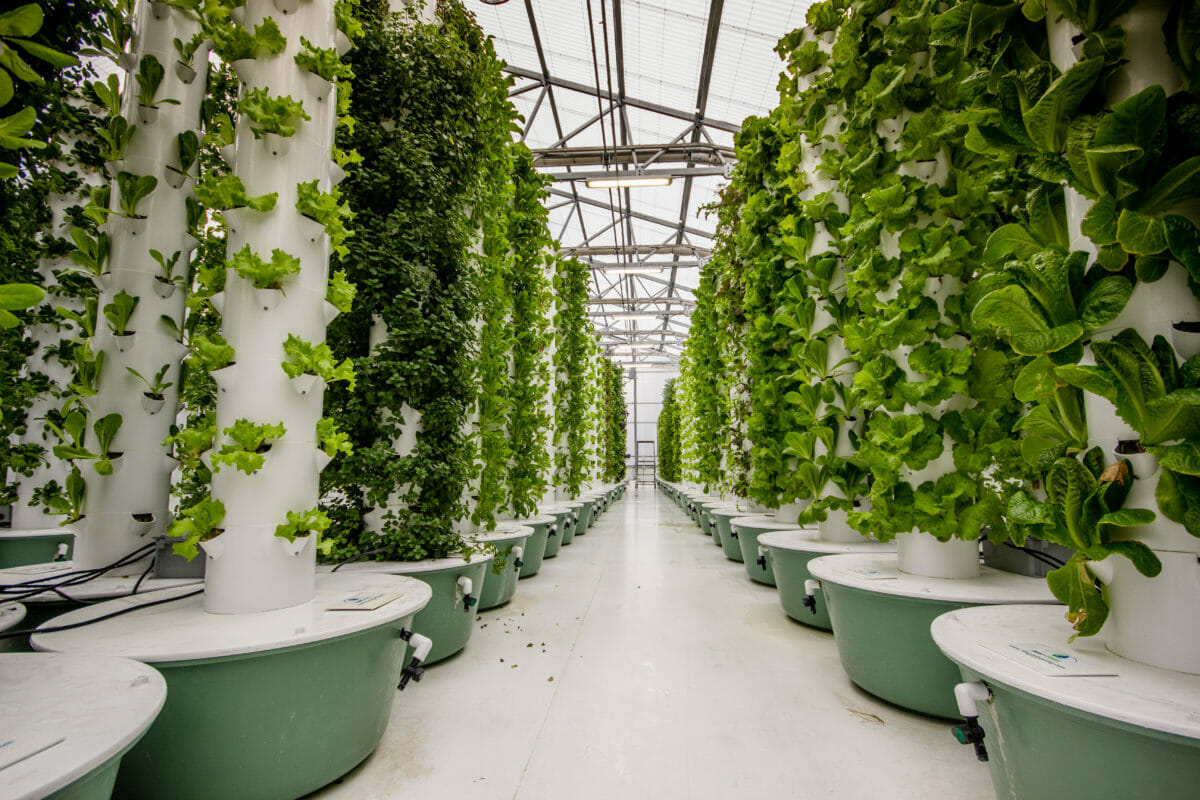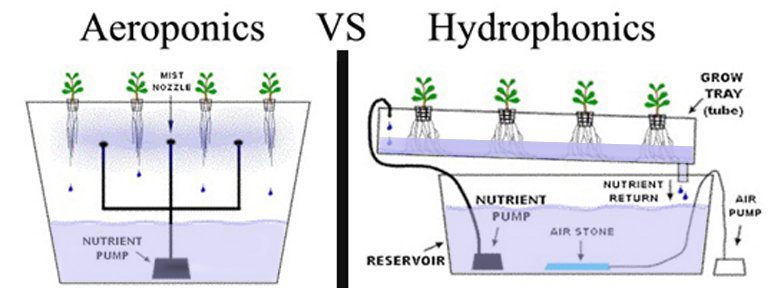
Source: Gardening Chores
You probably are already familiar with the aeroponics and hydroponics debate.
Especially if you are a homeowner who has a growing garden in your house, and are into organic produce.
Choosing between which system to use is important if you are practicing alternative farming, mainly organic farming.
As per what Jessica says about organic farming:
Organic farming is the new way of life.
Nowadays, our earth’s natural resources dwindle and we also have less space to grow our food.
That’s where organic farming comes in the picture.
I think the systems of aeroponics, hydroponics, and even aquaponics are worth the shot.
Sustainable, water-conservative, and easy to do.
What’s more, the organic produce is better for your health!
Jessica, New York
See?
With organic farming products and demands rising on the market, these two sustainable gardening system are gradually on the rise.
But which of the two cultivation methods is the most efficient and the best?
Let’s see the properties and characteristics of aeroponics vs hydroponics to know them better!
Aeroponics vs Hydroponics: Learning More About Each

Both hydroponics and aeroponics are maintainable, water-conservative farming strategies.
The difference between both is the medium which is used within the growth of the plants.
Hydroponics is the growth of plants using a nutrient-rich solution, rather than water.
Meanwhile, aeroponics is the development of plants employing a mist filled with essential supplements which is routinely showered on the roots of the plants.
Let’s see more about each group before deciding which is more suitable for you!
About Hydroponics

Source: Freepik
Not really staying true to the hydro part of its name, this gardening system employs a soil-less and waterless method.
Instead, it utilizes a nutrient-rich solution to prompt the growth of the plants.
So instead of water, hydroponics uses solution which is full of useful ingredients for the plants.
The solutions are created based on the required nutrients of each plant species specifically.
The main nutrients needed by said plants, as well as sunlight and oxygen, are provided by this system.
Hydroponics allows your plants to grow at a faster rate than when you grow it on soil.
In addition to that, hydroponics is totally DIY-material.
You can build it yourself from scratch at home with affordable materials and easy-to-follow guides online, or buy an already packaged set and build it up.
It can fit a room in your house or compact office rooftops just fine.
The system is also ready-to-use and not difficult to maintain.
Check out why we think hydroponics is better than soil for your garden.
Other advantages:
- 80% less water used
- pesticide-free produce
- repeated, consistent harvests
- compact gardening space
About Aeroponics

Source: Modern Farmer
Aeroponics is actually birthed from the concept of hydroponic system (hydroponics was famous first).
Unlike hydroponics which utilizes solution, aeroponics rely on spraying nutrient-rich mist directly to the roots of the plants.
To make sure the nutrients are able to enter the plant easily and effectively, the plants’ roots are left loose.
This extra exposure to oxygen is aiding in a faster growth rate for the plants.
What’s more, it saves up to 95% of water compared to the usual farming system.
The space required to utilize aeroponics system is also small and suitable for urban farming.
While the process is done in an enclosed space, the nutrient-rich mist can also be re-used anytime.
Check out these garden herbs which can be grown using the wonders of an aeroponic!
Other advantages:
- very low consumption of water
- pesticide-free, better-tasting fresh harvest
- compact gardening space
Aeroponics vs Hydroponics: Final Verdict
While aeroponics and hydroponics share the same idea, the mechanics of both systems are still quite different.
Both are efficient and sustainable; however, nature and resources required still vary:
Undoubtedly, the water usage needed for a hydroponics system is much higher than aeroponics system.
However, said water could always be recycled and reused.
Both systems require quite a hands-on experience when it comes to setting it up and maintaining its work.
Yet when deeply observed, an aeroponics set-up is slightly more advanced and complex.
Unlike a hydroponic system, which could be homemade using PVC pipes and available raw material, aeroponic systems could not be built easily.
It needs a proper system to be fully and effectively functional. This very reason makes aeroponics less cost-effective.
In both the systems, routine water checks are important.
The pH level of the water ought to be maintained, the water reservoirs ought to refilled regularly, nutrient levels ought to be ensured and the water lines ought to be cleaned at regular intervals.
The mist flow in an aeroponic system causes more fluctuations in the water levels. Therefore, an aeroponic system needs continuous monitoring.
Hydroponics contains a variety of systems available and they could be built easily at homes unlike aeroponic systems.
Even so, both systems still have its own advantages and disadvantages.
Taking your own experience and needs into account, choose one that will offer you more benefits.
Good luck!

